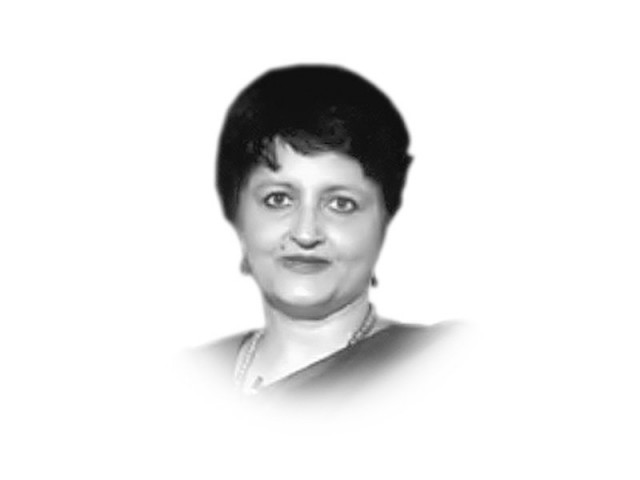Life as a journalist in South Asia
From outright violence to ingenuous measures, nothing is too dirty to ensure free flow of information is restricted.

The writer is a consulting editor with The Statesman and writes widely for several newspapers in India
Methods of control vary, but the intention of all players is common: to silence the media, or at least, terrorise it sufficiently to control it. Contrary to popular belief, the danger does not come from the garrulous television channels who speak in one voice, at different levels of hysteria, and can be easily choked by governments at any given point in time, but from persistent journalists who do their job with a certain level of honesty and courage. This is one of the primary reasons why individual journalists are targeted, arrested or killed so that others of their tribe will think twice before reporting the next story that hurts.
In Sri Lanka, the government, after the targeted attack on the LTTE and Tamils, clearly had a lot to hide. And hence, it resorted to full-scale censorship, refusing to let independent journalists from within the country or across the world visit the affected areas. It backed this with direct and indirect threats to the media houses and individuals to ensure that no one stepped out of line. This undeclared censorship has taken a heavy toll with freedom of the press being virtually dead in Sri Lanka. As a result, news of the killings of Tamils and more recently of LTTE commander Vellupilai Prabhakaran’s 12-year-old son have all been broken by a UK news channel and not by journalists within the country. As one of them told this columnist, “it’s not news to many of us, but we do not dare speak”.
In Pakistan, many journalists have been killed but the perpetrators have been rarely caught, with news of these incidents being censored by sections of the media for fear of repercussions. In real terms, there is no censorship, but there are ‘rules’ set out by all the shadowy forces that scribes can violate only at their own peril. A journalist, who shifted cities because of threats, was eventually killed on a visit to his hometown. Some just ‘disappear’ before their bodies are found. Journalism has become a dangerous profession in Pakistan but unfortunately, the hue and cry is limited to some journalistic bodies, with the government and the opposition registering scant concern.
In India, journalists in the northeast, particularly in Manipur, are currently working under threat from insurgency groups. The irony of it is that they have had to obtain protection from the state government that cuts into their freedom, as they cannot protect their sources from scrutiny. In Jammu and Kashmir, every curfew results in a state clamp-down on newspapers that have too often suspended publication for days on end. In other states, the big newspaper and television channel proprietors face pressure from governments and industrialists, who often determine the final complexion of the bulletin. Journalists are arrested in state ‘anti-terror’ drives, with the heat being felt by reporters in the Naxal areas, in Kashmir, and even in cities like New Delhi and more recently, in Bangalore where innocent scribes have been arrested and thrown into jail for months before being acquitted by the courts. This is not to mention the pressure exerted on local media by organised groups, such as the real estate mafia, the mining mafia, the coal mafia and, of course, the underworld in Mumbai.
The internet has changed some perceptions, but even so, India and Pakistan, in their bilateral relations, have still not officially relaxed information and communication in keeping with the modern era. News television channels remain banned, with India not even allowing Pakistan’s entertainment channels to penetrate the airwaves. Technically, customs on both sides can confiscate books and magazines as the law still prohibits these from being carried across the border. Despite the South Asian Free Media Association’s frantic ferrying of political leaders to and from India and Pakistan, neither side has eased travel restrictions for journalists. A former member of parliament from India was detained at the Wagah border for several hours by the Indian authorities because he had picked up a newspaper from west Punjab that had been left there by another traveller and had to prove that he was not trying to take it into Pakistan.
A lot has changed, or has it really?
Published in The Express Tribune, March 2nd, 2013.














COMMENTS
Comments are moderated and generally will be posted if they are on-topic and not abusive.
For more information, please see our Comments FAQ